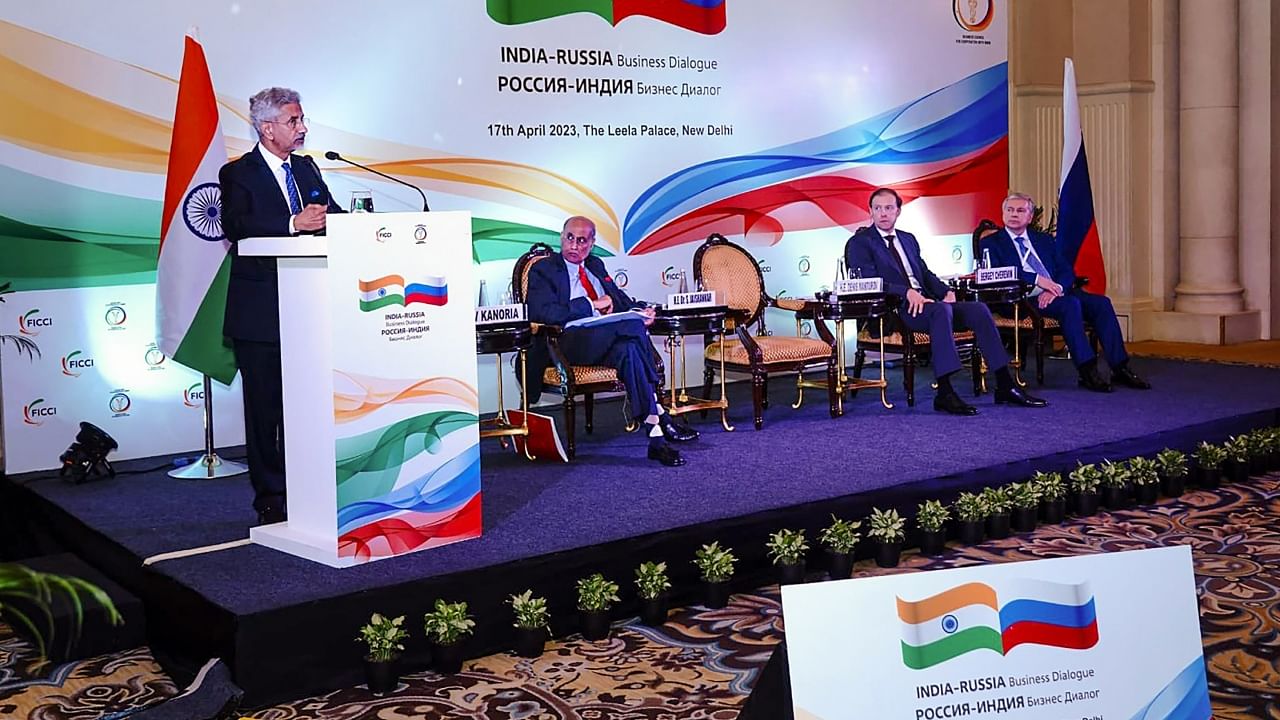
The negotiations between New Delhi and Moscow for a bilateral investment treaty have reached an advanced stage, External Affairs Minister S Jaishankar said on Monday, even as he stressed on restarting the talks between India and the Eurasia Economic Union (EEU) for a free trade agreement.
New Delhi moved to expeditiously conclude an investment treaty with Moscow and signalled its intent to resume negotiations with the EEU for a free trade agreement, even as it drew flak from the western nations for defying the sanctions imposed on Russia by the United States and the European Union and continuing its trade and economic engagement with the former Soviet Union nation after President Vladimir Putin ordered the launch of the “special military operations” in Ukraine in February 2022.
“We have been having discussions for a Free Trade Agreement between India and the Eurasian Economic Union. The Covid-19 pandemic interrupted those discussions, so I would very much hope that our colleagues will pick up on this,” Jaishankar said as he and Russian Deputy Prime Minister Denis Manturov addressed a business event in New Delhi. He said that the Ministry of External Affairs would do its bit to add momentum to the negotiations between India and the EEU. “Because, we do believe that they will make a real difference to our trade relationship.”
He confirmed that India and Russia were also in advanced negotiations for a new Bilateral Investment Treaty (BIT). “We appreciate that this is perhaps necessary; certainly useful to provide sufficient confidence to investors,” added the external affairs minister.
Manturov said that trade preferences and mechanisms that would guarantee the protection of investments would be in demand among Russian and Indian businessmen. He said that Russia, along with the rest of the EEU, was looking forward to intensifying negotiations for the free trade agreement with India.
New Delhi over the past 14 months not only continued with India-Russia trade and economic engagements, but also increased India’s crude oil import from Russia, taking advantage of the discounted price offered by the former Soviet Union nation after being hit by the western sanctions.
Prime Minister Narendra Modi and Russian President Vladimir Putin had a summit in New Delhi on December 6, 2021 when they had set a target for the bilateral trade to reach $30 billion by 2025. Jaishankar, however, on Monday said that India and Russia had already surpassed the target set by the leaders of the two nations.
“Now, we have crossed the bilateral trade target of $30 billion before the year 2025, which was the target year given to us by our leadership. And, in fact, for the period from April, 2022 to February, 2023, I understand that the trade is actually about $45 billion and the expectation is that this will continue to grow,” said Jaishankar.
The external affairs minister however expressed concern over the growing trade imbalance created by the surge in bilateral commerce. “We need to work together with our Russian friends on a very urgent basis on how to address that imbalance. And addressing that imbalance really means addressing the impediments- whether they are market access impediments, whether they are Non Tariff barriers, whether they are related to payments or to logistics,” said Jaishankar.
India refrained from joining the western nations in condemning Russia’s aggression against Ukraine. India refrained from echoing the US and rest of the West primarily in view of its decades-old strategic partnership with Russia and its continued reliance on military hardware procured from the former Soviet Union nation.
